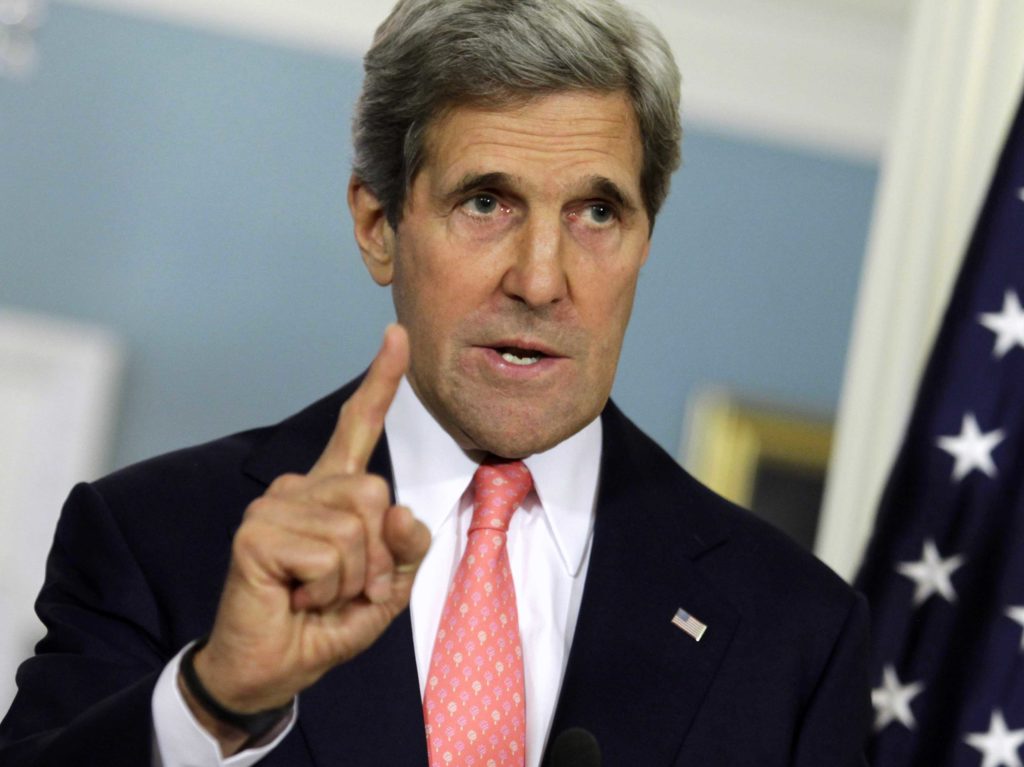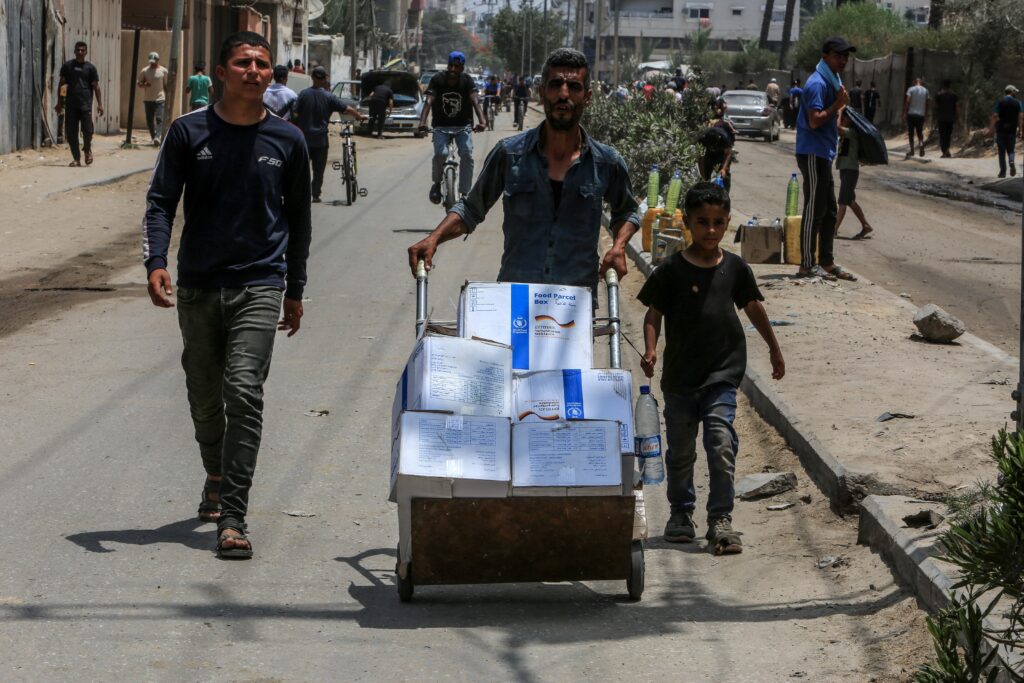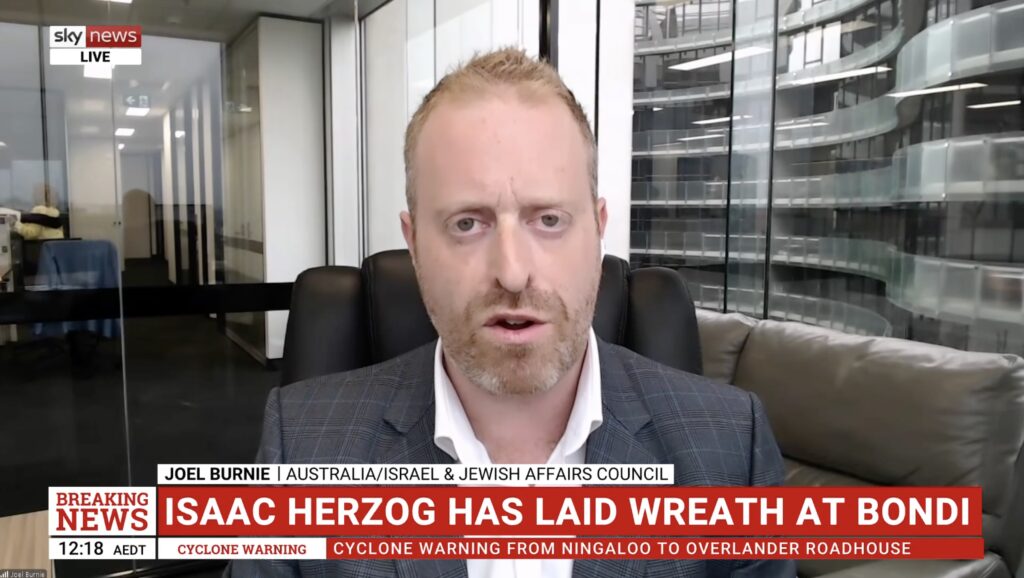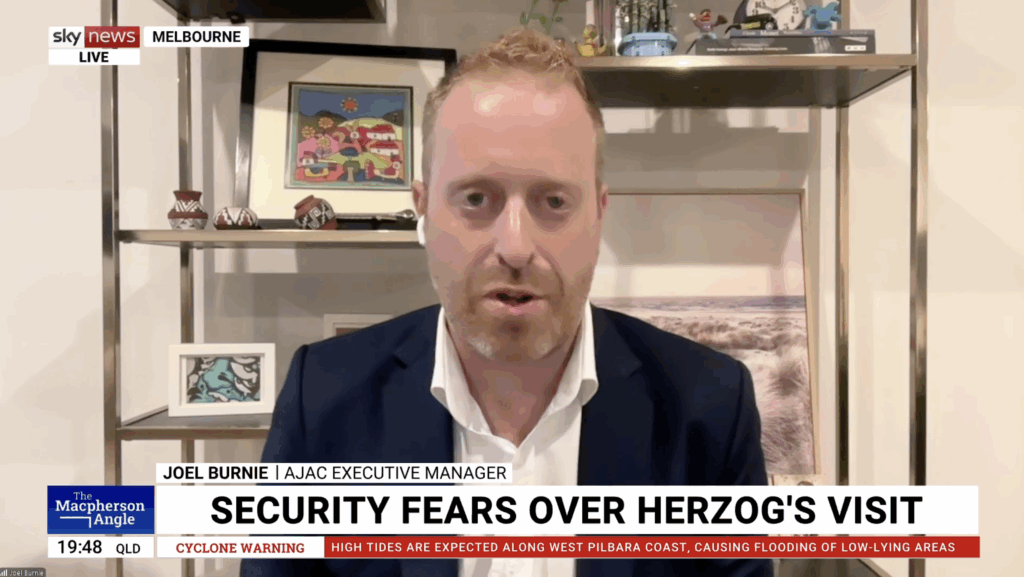UPDATES
Buzzwords and Blunders: John Kerry’s ‘Apartheid’ Comment
May 2, 2014 | Glen Falkenstein

US Secretary of State John Kerry warned a room of world leaders last Friday that Israel was in danger of becoming an Apartheid state, according to The Daily Beast. He reportedly said:
“A two-state solution will be clearly underscored as the only real alternative. Because a unitary state winds up either being an apartheid state with second-class citizens-or it ends up being a state that destroys the capacity of Israel to be a Jewish state.”
Let’s be clear; Kerry was not, and has never, called Israel an apartheid state. As reported in The Australian, Kerry’s statement that ‘if Israel failed to seize the opportunity to make peace soon, it risked becoming an apartheid state’ was an effort to motivate the parties to return to the table and the international community to make supporting such a deal a priority.
What Kerry did however, probably inadvertently, was effectively buy into and implicitly endorse vitriolic criticism of Israel used by boycott advocates and others who seek the dissolution of the state of Israel by employing the term ‘Apartheid.’ It’s a buzzword that gets thrown around a lot by many, but saying something a lot doesn’t make it true. It’s a shame the term found its way into Kerry’s lexicon because use of the word ‘Apartheid’ bears very erroneous implications.
In 1961, Israel voted against South-African Apartheid in the UN and the Prime Minister of South Africa, who was responsible for instituting actual Apartheid, retorted with a slur analogizing Israel to South Africa. Since then, many have been fond of picking up the term when calling for the destruction of the state of Israel, effectively throwing their hats in with the architects of South African Apartheid.
The ICC Rome Statute defines Apartheid as the following:
‘…inhumane acts…committed in the context of an institutionalised regime of systematic oppression and domination by one racial group over any other racial group or groups and committed with the intention of maintaining that regime.’
Richard Goldstone, noted for chairing a harshly critical UN inquiry on Israel, was a South African Judge charged with investigating violence during the Apartheid era and credited with advancing the reconciliation movement in South Africa. He noted the fallacy of comparing Apartheid in South Africa to modern-day Israel in a New York Times opinion piece a few years ago.
“It is important to separate legitimate criticism of Israel from assaults that aim to isolate, demonize and delegitimize it…[apartheid] is an unfair and inaccurate slander against Israel, calculated to retard rather than advance peace negotiations…in Israel, there is no apartheid. Nothing there comes close to the definition of apartheid under the 1998 Rome Statute…and the deep disputes, claims and counterclaims are only hardened when the offensive analogy of ‘apartheid’ is invoked.”
In 2001 the UN World Conference against Racism, Racial Intolerance and Xenophobia in Durban, South Africa, was hijacked by a group of radical NGOs to launch a coordinated program to demonise Israel as the key “racism” problem in the world today. Promoting the Apartheid slur has been a central part of that program ever since. Yet the behaviour of the NGOs at the conference was severely condemned by the post-Apartheid South African government at the time:
“South Africa’s then Deputy Foreign Minister, Aziz Pahad, responded in these terms: ‘I wish to make it unequivocally clear that the SA government recognises that…[the Durban Conference] was hijacked and used by some with an anti-Israel agenda to turn into an anti-Semitic event.”
Decades ago South Africa abolished the shameful racist laws that beleaguered the country for decades, and since then no other country has adopted those policies. Moreover, if one is determined to find contemporary regimes devoted to “systematic oppression and domination by one racial group over any other racial group or groups”, there are numerous nations which would make much better candidates for analogy to Apartheid South Africa than Israel, which has enshrined equality before the law as fundamental in its legal system since 1948. Yet groups adopt the language of “Apartheid” for Israel because it was then universally agreed that the South African government’s legal racism made it a pariah regime which had to be substantively abolished – and their aspiration is for the same thing to happen to Israel.
The lengths to which they will go to slip the word into any discussion of anything about Israel is often simply absurd.
The Boycott Divestment and Sanctions Movement recently published a statement calling for the boycott of New Balance and Intercontinental Hotels over the participation in the Jerusalem marathon, which they called an ‘Apartheid Marathon.’
Now, of course the marathon was open to all comers, Jewish, Arab and others. Yet the group bizarrely argued that the marathon is ‘part of an ongoing process to institutionalize Israel’s hold on the occupied city,’ as if a marathon was never just about running, and as if Apartheid simply means “supporting policies I don’t like.”
Using the word “Apartheid” in discussing Israel and the Palestinian territories lends support to marginal and factually defunct views on the current conflict like these, as noted by no less an authority than Mr. Kerry’s boss, US President Barack Obama. As noted by the Sydney Morning Herald, Obama declared during a 2008 election interview that the term is “emotionally loaded, historically inaccurate, and it’s not what I believe”, and went on to categorically reject the notion of “injecting a term like apartheid” into the debate.
The Washington Post notes the fallacy of using such terms to characterize the current state of affairs:
“All he (Kerry) can do is parrot the rote lines of Israel’s enemies that it will suffer boycotts and another intifada and become an apartheid state.”
Kerry back-tracked his comments under pressure as reported by the NY Times and stated unequivocally:
“I have been around long enough to also know the power of words to create a misimpression…it [apartheid] is a word best left out of the debate.”
Kerry’s apology is important in that it acknowledges the damage potentially caused to the peace process by using this term. At a time when the Palestinians appear to prefer pursuing their cause in international forums rather than negotiating a two-state resolution, which is in fact the only viable way forward as Kerry himself stated numerous times, using such terms only encourages the Palestinian leadership and their international supporters to continue to refuse a negotiated compromise. As BICOM has noted:
‘The promotion of the Apartheid Smear encourages the Palestinians not to accept Jewish national rights and the State of Israel…The Apartheid Smear also creates a poisonous climate for negotiations, by demonising Israel. It marginalises moderate voices on both sides and undermines the possibility of reconciliation.”
Veteran Middle East mediator Aaron David Miller, writing in Foreign Policy Magazine, similarly noted why such comments are counter-productive and harm the peace process:
‘Kerry’s comments are gratuitous and serve no purpose. Indeed, picking a fight now, when the process is, for all intents and purposes, on hold, will yield no benefit whatsoever…Telling the Israelis that they are in danger of becoming like a racially structured South African state does nothing except piss people off. And it’s simply wrong to boot.”
‘Apartheid’ had no place in South Africa, it has no place in a modern world, and it has no relevance to the Middle East peace process. Using the term only encourages the rejectionists and extremists, while detracting and distracting from viable solutions and productive debates.
Glen Falkenstein
Tags: Israel





